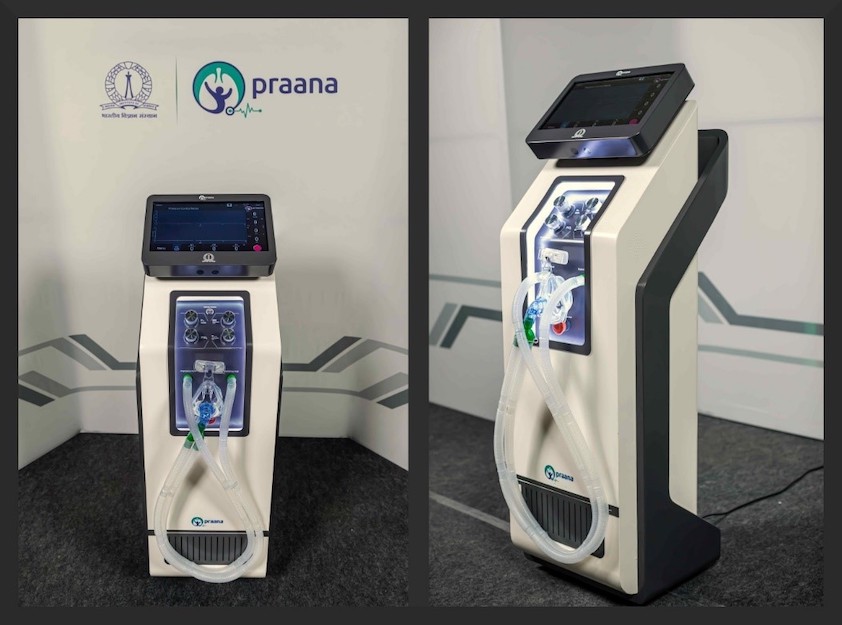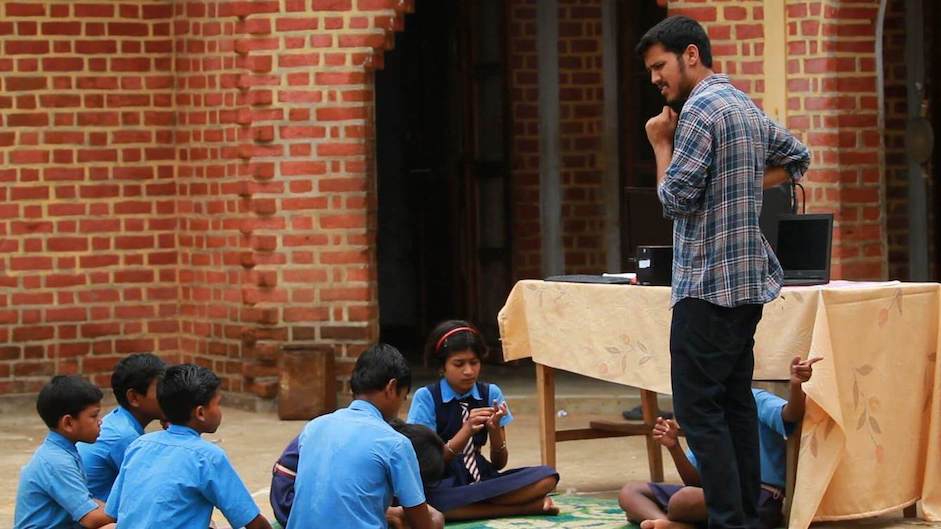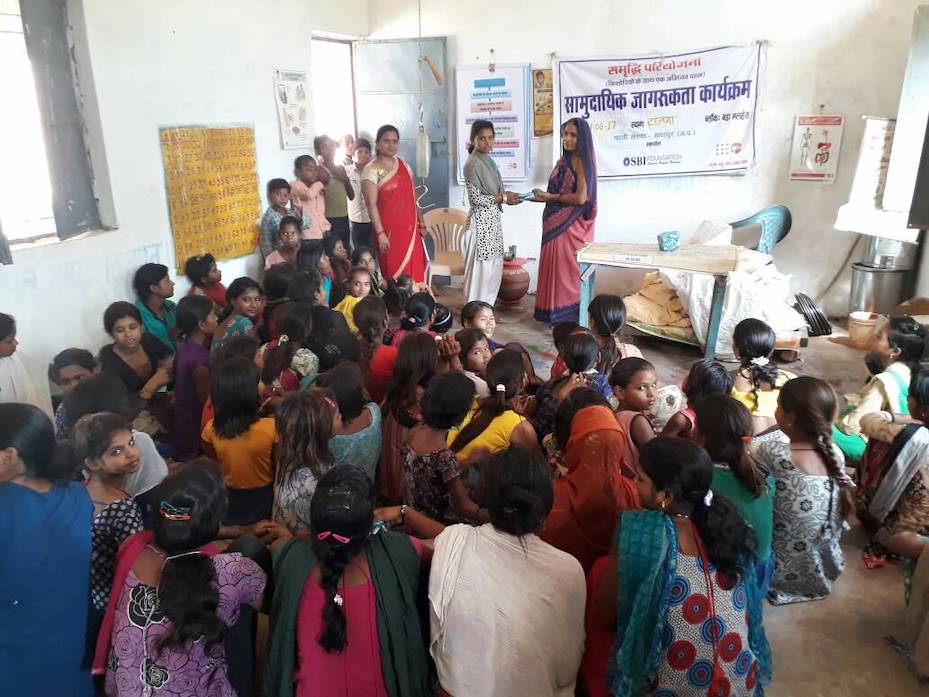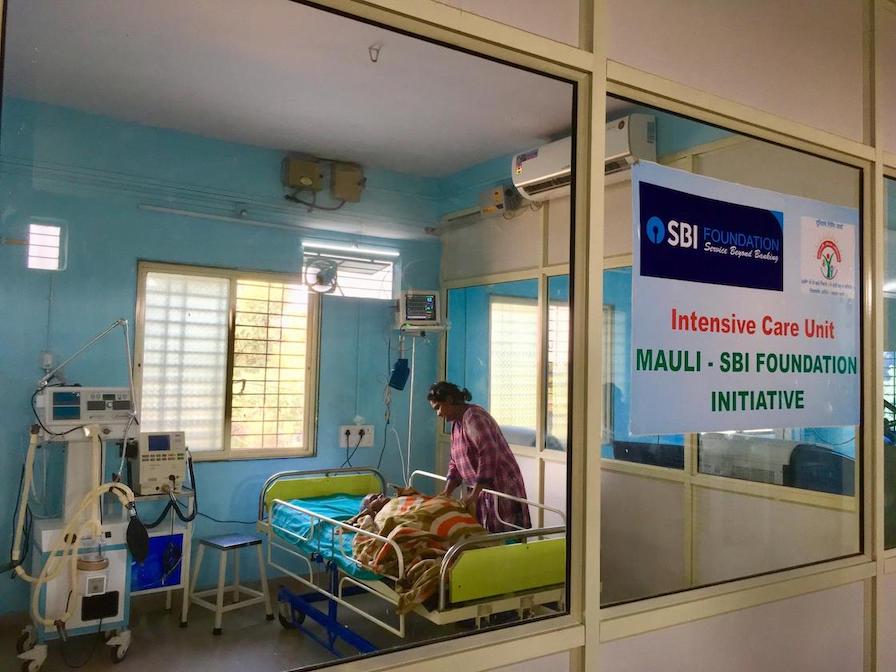State Bank of India (SBI) is the largest commercial bank in India in terms of assets, deposits, branches, customers, and employees. It is also the largest mortgage lender in India. With a legacy of over 200 years, SBI is an Indian multinational, public sector banking and financial services statutory body. For SBI, the interests of the common man have always remained at the core of its business. The Bank has a strong portfolio of distinctive products & services and leverages technology to deliver and manage them in a personalised and customer-centric way.
Social Responsibility is deeply ingrained in the culture of the State Bank of India. Consequently, the Bank has been actively involved in CSR activity since 1973. The primary purpose of the Bank’s CSR philosophy is to make a meaningful and measurable impact on the lives of economically, physically and socially challenged communities of the country.
The objective of the Corporate Social Responsibility (CSR) policy of the State Bank of India is to participate in activities that benefit community development, social responsibility, and environmental sustainability while also reaching out to socially and economically disadvantaged sections of society. During FY2022, the Bank’s total CSR spend amounted to Rs. 204.10 Cr., which accounted for 1 per cent of the net profit of FY21. Out of this, an amount of Rs. 102.56 Cr. was allocated to the SBI Foundation, the CSR arm of the bank.
The Bank’s CSR activities for FY2022 focused on Rural and Slum area development, Health Care and Sanitation, Education, Environment Sustainability, Tribal Welfare, Empowerment of Women and Senior Citizens, as well as supporting sports and athletes. A total of Rs. 71 Cr., equivalent to 35% of the total CSR spend, was dedicated by the Bank towards the fight against COVID-19.
Below is the video that highlights the CSR initiatives of the State Bank of India.
1. SBI CSR
Shri Rana Ashutosh Kumar Singh, DMD (HR) & CDO, SBI said, “Being the country’s most trusted financial institution since more than 200 years with a rich heritage and legacy, we believe it to be our responsibility to support and contribute towards the betterment of our society. For SBI, CSR is all about being the change that brings about a transformation and ignites the minds of its employees, stakeholders, customers, the individuals to follow conscious living as far as the ecological balance is concerned. We aim to create community goodwill by empowering vulnerable communities and give back to our society whenever possible through purposeful activities.”
The Bank undertakes its CSR activities on its own as well as through SBI Foundation.
2. SBI Foundation (SBIF)
SBI Foundation (SBIF) is the CSR arm of the SBI group including the SBI Bank. It was established in 2015 to undertake the CSR activities of SBI Group and its subsidiaries in a focused manner and working on various projects to build momentum for transforming India by creating an inclusive development paradigm that serves all Indians without any discrimination based on region, language, caste, creed, religion, etc. and ensure that each initiative creates a substantial change at the grassroots level.
The foundation reaches out to millions of households across the country. It recognises its responsibility towards society at large and endeavours to act ethically, make a difference and leave a positive impact on society. Its vision is to improve the socio-economic well-being of the society, particularly of the less fortunate and underprivileged members and enable them to live up to the potential that they all possess and to create an inclusive development paradigm that serves all Indians and to deliver societal benefits to all geographical regions of the country without any regional, linguistic, caste, creed, religious or other barriers. Its mission is to make resources available to the most vulnerable sections of the society directly and through strategic partnerships/collaborations with impact making entities in the social and development sector in the most transparent way to create inclusive sustainable development.
3. SBI’s COVID-19 Relief Contributions
During the FY20, in an endeavour to fight the Covid-19 pandemic, while SBI staff members collectively donated `108 crore to the PM Cares Fund, the SBI Bank also pledged `30 crore for COVID related CSR activities besides donating around 21000 PPE Kits to government hospitals. The Bank in the initial stages of the pandemic committed to spending 0.25% of its annual profit (FY 2019-20) to fight the COVID-19 outbreak situation in India. Additionally, in 2021 as the vaccination began, in order to support the next phase of the government’s COVID-19 vaccination drive, SBI committed to contributing Rs. 11 crores to the PM CARES Fund. In March 2021, the Bank donated 1 crore to the Mumbai Police Foundation showing its support and appreciation towards the COVID warriors.
3.1 Project ECHO by SBI Foundation
SBI Foundation has partnered with ECHO India for training and mentoring healthcare providers across various states in India. ECHO India uses its telementoring platform for knowledge dissemination of best practices for addressing the coronavirus outbreak by adapting the Extension for Community Healthcare Outcomes (ECHO) model and capacity building of the healthcare providers. The goal of this initiative is to contain the pandemic through providing better services to vulnerable and high-risk communities/population.
Since 1st April 2020, total number of 2,79,617 spokes from various cadres have been successfully trained through 802 COVID sessions conducted by ECHO India in collaboration with 10 NHMs in Assam, Gujarat, Maharashtra (with PHI Nagpur), Punjab, Rajasthan, Tamil Nadu, Uttar Pradesh (with SGPGIMS), Karnataka, Chhattisgarh and Kerala; STOs in Karnataka and Orissa, and STDC Jharkhand. Overall, ECHO India in association with its government and non-government partners has successfully trained more than 3,26,343 spoke participants on prevention and management of COVID-19.
3.2 Project Praana: Electro-Mechanical Ventilator Design
Project Praana aims to design an electro-mechanical ventilator with locally available components so that the production of the ventilators can be rapidly scaled up. A laboratory-grade prototype of an electro-mechanical ventilator based on its novel ventilator design has been developed. The ventilator is at the industrial design phase and is looking for potential industry partners to convert it into an industrial product with a view to commercialising it.

3.3 India Health Alliance
SBI Foundation has launched India Health Alliance (IHA), a collaborative healthcare programme to support the Government of India in its efforts to combat current and future healthcare challenges in the country. To catalyse this initiative, United States Agency for International Development (USAID) India has joined as a strategic partner, Xynteo India has joined as a technical partner and IPE Global PAHAL (Partnerships for Affordable Health Access and Longevity) will provide the necessary technical assistance. The prime focus of IHA would be on combating the COVID-19 healthcare pandemic in India, providing comprehensive primary healthcare and optimum nutrition to the vulnerable population, promoting innovative finance, as well as promoting innovations and cutting-edge technologies that can overall strengthen the health systems of the country.
4. SBI Gram Seva Program
SBI Gram Seva is a holistic development program aimed at bringing a socio-economic change by adopting villages in rural areas and making villages self-reliant. The objectives of the programs include:
A) To make use of government schemes/services for activities to benefit the individuals
B) To raise awareness of online banking services, government schemes and train villagers to access information online
C) Improving infrastructure in the villages and providing basic facilities for individuals
D) To involve the Panchayat Village Self Government in development programmes, and to create an environment that encourages the participation of individuals in rural asset creation and community development to make the village self-sustainable

The key focus areas for the program are infrastructure, education, healthcare, sanitation, digitization, skill development, livelihood, government convergence, women empowerment, environment and waste management. The initiative is aimed at bridging the gap between the underdeveloped areas of the society and the urban areas by providing easy access to information for school students to ensure their growth and development and have thus set up community information centres, Wi-Fi, Smart Classrooms, Computer Education facility in schools, remedial classes for students, scholarships to meritorious students, etc. The foundation has also conducted cleanliness drives, water connectivity and organised campaigns for women empowerment. The program has positively impacted 11,836 households and 54,065 individuals in the last two years.
5. Centre of Excellence for PwDs
In a world striving for inclusion, some people continue to remain on the fringes. Discrimination against the disabled is ingrained into our institutionalised culture. To be born with a disability often translates to living life as a second-class citizen. This attitude is tolerated, accepted and normalised in our society because there exists a lack of real understanding of disability. There is a stigma attached to PwDs by both non-disabled and disabled people.
The majority of persons with disabilities can lead to a better quality of life if they have equal opportunities and effective access to rehabilitation measures. There has been increasing recognition of the abilities of persons with disabilities and emphasis on mainstreaming them in a society based on their capabilities.

Centre of Excellence for PwDs (CoE) is one of the SBI Foundation’s flagship programmes. It was conceptualised with a goal to be a centralised support centre for persons with disabilities. CoE, since its inception, believes that persons with disabilities are perfectly capable of making important contributions to society. They have the requisite drive to succeed in employment, and the skills and talent necessary to deliver on the job.
Centre of Excellence primarily works on empowering PwDs through skill enhancement to make a significant and measurable improvement that enables individuals to enjoy a more productive and satisfying life by optimising their cognitive, physical, social and vocational functioning.
5.1 Project SAMEIP
Project SAMEIP is aimed at enabling career pathways for 500 underserved youth with disabilities in the digitally transformed BFSI sector in India by setting up five centres in five cities viz. Mumbai, Delhi, Bangalore, Chennai and Hyderabad in India. SAMEIP is being directly implemented and monitored by the American India Foundation Trust (AIFT). A highly innovative project enabling career pathways for under-served young people with disabilities in the digitally transformed BFSI sector in India.
5.2 SBI Shravan Shakti
SBI Foundation has provided financial assistance for cochlear implant surgeries of underprivileged children born with a speech and hearing impairment under the ADIP Scheme of the Government of India. This cochlear implant project has been implemented by Ali Yavar Jung Institute of Speech and Hearing Disabilities (AYJNISHD). So far, SBI Foundation has supported the implant surgeries of 67 children identified on the waitlist for a cochlear implant. Post-surgery rehabilitation and therapy are conducted immediately after the surgery every quarter. The parents of these children also receive training and based on the training, the parents’ need to continue speech therapy is decided. The therapist submits the data and reports to AYJNISHD every quarter on each child’s progress in speech and hearing. Besides speech therapy, mapping of the hearing implant is done through the electrical threshold for three years continuously. This surgery eventually enables the children born with a speech and hearing impairment to listen and speak.
5.3 SBI Parivarthan
Through Parivarthan, SBI Foundation in partnership with Youth4Jobs hopes to make inclusive employment of PwDs a norm. It has become pertinent with time that PwDs who are hired be seen for their assets, rather than as token employees with a disability. Through this initiative, the foundation aims to help PwDs develop vital communication, provide them with the best chance of becoming economically active and in-turn empower them to maximise employment, achieve economic self-sufficiency and independence, and realise full inclusion and integration into society.
The enrolled youth with disability undergo a market-linked training program in the classroom and industrial visit for 60 days, which includes learning English and basic knowledge computers, developing one’s personality and self-confidence, learning how to tally, and many more market-oriented courses based on the market value. After successful completion of the training program, based on the skill set of the candidates and market needs, these individuals get placed in companies in the organised sector. If the skills of the youth with a disability can be developed and matched with specific job requirements they can be a boon to their respective organisations. So far, we have established two skilling centres in Bangalore and Trichy and will establish a new skilling centre in Delhi this March.
6. SBI Youth of India Fellowship Program
SBI Youth for India (SBI YFI) is a unique rural development fellowship program funded and managed by the SBI Foundation in partnership with reputed NGOs of the country. It provides a framework for India’s bright young minds to join hands with rural communities, empathize with their struggles and connect with their aspirations. The selected fellows, from some of the top institutes/corporates, work with experienced NGOs on challenging development projects. The initiative provides avenues for the youth to become aware of the ground realities and presents them with an opportunity to contribute through their efforts towards building strong cohesive communities. The fellowship offers them an opportunity to work across many areas of interest viz. health and sanitation, livelihood, education, women empowerment and many more. The 13-month long program allows the fellows to travel the length and breadth of the country and make a difference at a grass-root level. It aims at generating interest of the educated youth towards the social sector and inculcates a spirit of social entrepreneurship within them.

So far, the program has built a network of more than 350 alumni, who have made a difference at more than 150 rural locations across 25 states of India. 70% of these alumni continue to be actively involved in the development sector.
7. SBI Foundation’s Women Centric Initiatives
Gender equality has become a critical issue in the world we live in; especially when it comes to India, the issue becomes more sensitive in itself. While we are continuously striving to make women overcome the fear of threat and violence, equal emphasis has to be laid for men to choose roles that are not predefined by masculinity. Though gender equality is considered a feminist issue, however, it goes on to have several implications on economic and moral agendas. It is critical to maintaining a balance between gender diversity since the smallest discriminatory act can perpetuate gender bias for generations. SBI Foundation identified this grave reality and started working on some programs to help create a balance between them.
7.1 Project Samriddhi
SBI Foundation and the United Nations’ Population Fund (UNFPA), launched Project Samriddhi as part of UNFPA’s 12-nation action for adolescent girls’ initiative in the district of Chhatarpur, Madhya Pradesh, India on 6th May 2017. By setting up a robust and effective network of peer educators and grassroots functionaries, Samridhhi ensured that the process of empowerment of adolescent girls came from these girls themselves.

The project targeted and was aimed at enhancing the health, social and economic well-being of adolescent girls in the age group 10-19 years, particularly those in the vulnerable sections. It also helped young girls realise their aspirations, make informed and responsible choices in matters related to their health and well-being and enhance their development and growth in their communities. The first phase of the project benefited over 3,500 to 4,500 adolescent girls across approximately 150 villages in Bijawar and Badamalhara blocks from March 2017 to February 2018.
7.2 Mauli Seva Pratishthan
Mental illness has failed to get as much importance as physical illness. When it comes to mental illness amongst women, they face high discrimination across all spheres of life. They are usually disregarded by their families and given inhumane treatment. These women are particularly prone to being easy targets of sexual abuse. The mentally ill destitute comprise a largely forgotten and unthought-of section of the homeless. For many women, years of violence is often followed by homelessness and abuse which undermines their self-esteem, contributes to their pain. This makes them feel powerless and reinforces social discrimination.


